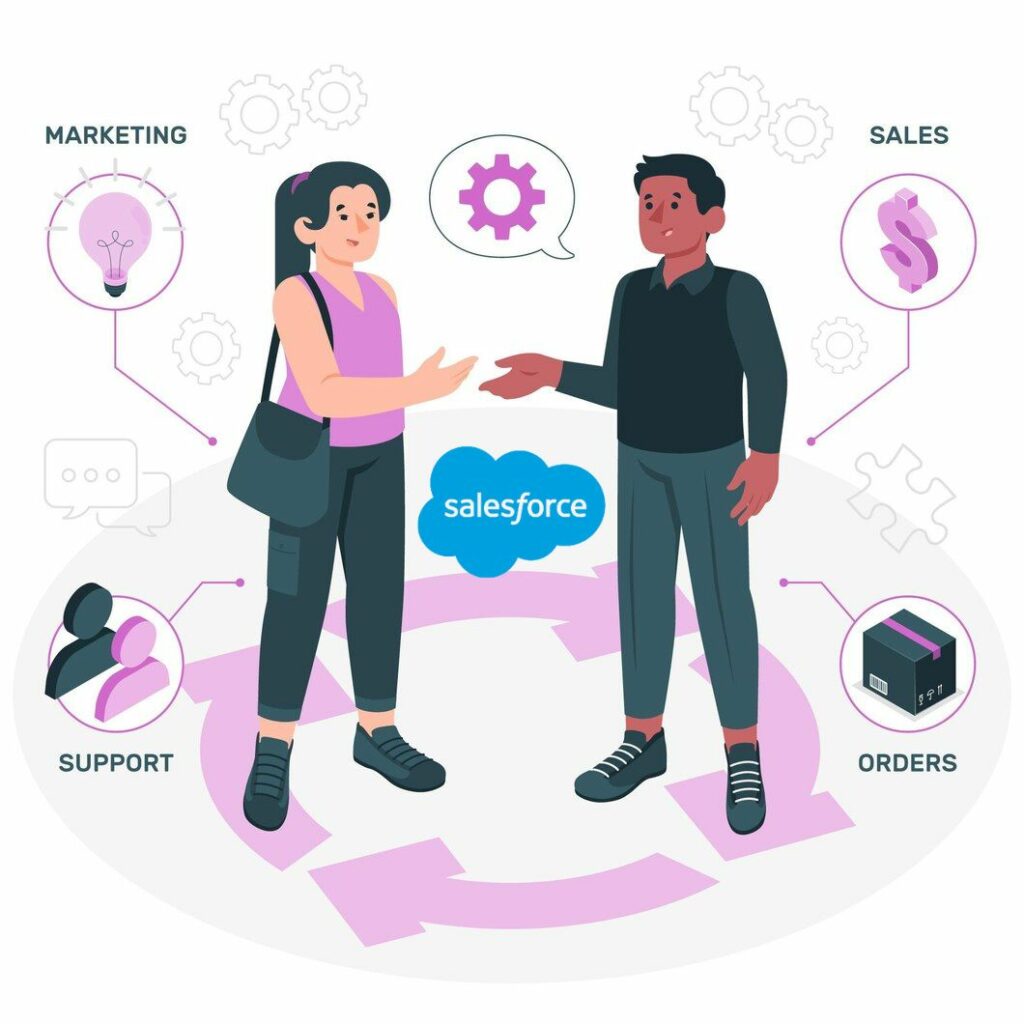- Home
- About
- NetSuiteNetSuite
ERPNetSuite
ERPNetSuite
CRMNetSuite
CRMNetSuite
PSANetSuite
PSANetSuite
EcommerceNetSuite
EcommerceNetSuite
OneworldNetSuite
OneworldNetSuite
SuiteSuccessNetSuite
Success - Industry
- ServicesNetSuite
CustomizationNetSuite
CustomizationNetSuite
ImplementationNetSuite
ImplementationNetSuite
IntegrationNetSuite
IntegrationNetSuite
TrainingNetSuite
TrainingNetSuite
MIS ReportingNetSuite
MIS Reporting - Integration Tool
- Blog
- Career
- Contact
How to get your NetSuite ERP implementation right – 11 points to consider
NetSuite ERP Implementation
Congratulations! You have selected the best ERP software – NetSuite ERP. And you are all set to enjoy the benefits now. But, wait. You are a step away from it. You are yet to get the NetSuite implementation right.
What is NetSuite implementation?
The NetSuite ERP implementation process involves customizations, NetSuite integration, data migration, and NetSuite employee training. It is a complex process and takes a lot of time for complete implementation. But it streamlines your business processes, improving overall productivity and giving a holistic view.
To realize these benefits, you must move ahead with the NetSuite implementation as fast as possible. But you have to be extra careful to avoid its failure. You can ensure its success with clear, aligned objectives and collaboration and communication among team members.
This article will guide you on every aspect related to ERP implementation. Before starting the NetSuite implementation process, you must be aware of all these elements.

1. Understand the Reasons for Implementing NetSuite ERP Software
What are the objectives of ERP implementation?
Understanding your ‘why ERP’ is essential. Just because you have heard a lot of merits of implementing ERP, it does not mean your business will also benefit the same way. Identify the reasons why your business needs it. It may be any one or more of:
- To increase the efficiency of your business processes by automating them. Automation helps managers easily access relevant data and generate insights through the dashboard.
- To improve collaboration, coordination, and communication between internal teams and business functions because of shared data.
- To reduce the possibilities of operational breakdowns, interruptions, delays, etc., thereby leading to more productivity.
- To diminish the chances of data breaches with limited access rights.
- To effectively manage risks through better financial management, prediction, budgeting, scheduling, and other planning.
- To generate more insightful and actionable reports that guide your future strategies, actions, and decision-making.
You must be clear on your reasons for implementing ERP. You must be aware of any NetSuite customization requirements related to specific business functions. There is a possibility that the vanilla ERP solution works for you. Clarity on this will enable you to know what features and functionalities you are looking for and if the selected vendor will be able to satisfy you with the ERP implementation services.
2. Plan well for NetSuite ERP Implementation
Which is the most critical phase in ERP implementation? – Planning it is.
Having clearly defined goals is the way to a successful NetSuite ERP Implementation. With definite goals, you know where you have to reach and what path to take. It helps you plan the implementation process to the last step.
What is included in an implementation plan? – Your planning will involve the budget, timelines, and resources required for the ERP implementation project. Focusing on these three factors will help you have a smooth implementation as per the plan, leading to goal achievement.
3. Set Your NetSuite ERP Implementation Timelines and Budget
What is a successful ERP implementation? – Within time and within budget.
A project cannot start on the right note if you do not plan timelines and budget beforehand. Generally, projects exceed the defined timing and costing because not all factors are considered. So, try to set realistic budgets and timelines by incorporating all elements that can delay the project or overshoot the cost.
For NetSuite ERP Implementation scheduling, consider the phases of the project, customizations required, and relevant changes needed. These factors will affect the timelines of the project. Also, keep a few days extra for any uncertain events that may affect the NetSuite ERP Implementation project.
The NetSuite implementation project cost will include cost elements of software, customizations, resources, changes in existing IT infrastructure, and other support services expenses. Prepare a budget based on these factors and get it approved by higher authorities. You also must factor in unexpected expenses of a minimum of 25% of the total budget for uncertain events.
4. Clearly Define the Scope of Your NetSuite Implementation Project
Defining the scope of your project is essential to ensure you do not miss anything or do not do more than required. Scope management is vital to keep your project priorities right and in alignment with your overall strategic goals.
Defining scope is critical because NetSuite ERP Implementation is a long, complicated process. It needs to be completed in stages. You must define the steps to ensure your usual business processes are not disturbed, and implementation happens in a priority manner.
For example, a retail firm may like to focus on CRM in the first phase. Next, they may be considering the implementation of inventory and supply chain. Thus, scope helps you understand the full vision of the NetSuite implementation project along with the phases to ensure the team remains in focus.
5. Distinctly Mention the Required Customizations
Customizations in NetSuite ERP software make it ready for any industry. Any ERP software can solve your organization’s primary business needs, but NetSuite provides the customizations required to make you industry-ready. You get the exact functionality you want to make your business function better.
But be very careful while handling customizations during NetSuite implementation. You must know in what phase to start adding customizations. Also, understand how many customizations you need; as the number increases, the duration of ERP implementation increases. The best practices would be:
- Identify the required customizations for your business
- Clearly define the customizations and have them approved
- Phase them out in the best manner possible
- Ensure you harness maximum benefits out of these customizations
6. Hire an Effective NetSuite Implementation Partner
Can you implement NetSuite by yourself?
Having a capable NetSuite implementation partner will solve all your problems. Then you will not be required to worry about any other thing. Just research the vendor market well, identify what the vendors are offering, negotiate the budget and timelines, and sign the agreement.
The vendor’s commitment to getting it right for you will impact the ERP implementation for your business. The vendor will provide support services, resolve issues arising during the process, and manage risks. It will also impart necessary training to your employees on using NetSuite ERP.
We solve this problem of yours because we suggest the Best NetSuite Partner – Cloudiotech.
Cloudiotech is a leading provider of NetSuite implementation, integration, customization, and training services in the US and UAE. We understand your business’s ERP needs and customize the ERP software accordingly. Our competent, experienced, and collaborative analysts and ERP experts ensure the best services for your needs. We satisfy our clients with the most effective, fast, and affordable NetSuite implementation services.
7. Onboard the Right Resources for the Journey Ahead
Resource planning and resource strategy are crucial for NetSuite ERP Implementation for any business. And you must have these ready on time to avoid delaying the entire ERP implementation process.
The resource strategy will mention the resource requirements for your NetSuite ERP Implementation journey. You must find out what all sectors of this implementation project you will need help with. You would need help with project management, organizational change management, handling data migration, and conducting appropriate training for employees.
Now, look at your internal resources; find out if those are capable enough to carry out a successful NetSuite implementation. If not, identify the roles you have to fill, the responsibilities of these roles, and hire the best people.
Thus, the resource strategy will help you with the implementation cycle. You will have hands-on support to harness the maximum benefits of the ERP software. Together, you can determine the right direction for your organization because no one identifies with your goals better than you.
8. Place High Importance to Change Management Plan
Changes are inevitable when you go for new technology implementation. Either your existing business processes change, or the new software’s functionality facilitates existing processes. Either way, it is beneficial to your business.
You need to pay great attention to these changes and manage them well. Firstly, prepare your organization for these changes. The employees, The processes. The results.
Before the NetSuite ERP Implementation, discuss with your employees the changes due to the new NetSuite ERP software. Drive them and motivate them for full acceptability and adoption. When they accept the changes, only then will you be able to benefit from NetSuite implementation. Without their acceptability, the project will not generate the expected results.
9. Pay a Good Amount of Attention to Training Requirements
Unless your employees know how to use NetSuite ERP software, it will serve no purpose. Therefore, make NetSuite training a primary part of your ERP implementation.
Your employees’ job starts once the NetSuite ERP Implementation is over. They will be using the software in day-to-day operations to make the processes more competent and faster. Their software usage will generate the expected benefits of NetSuite for you.
Therefore, plan for an ERP training course before the implementation is over. Set aside a reasonable budget for it, get a professional trainer, and dedicate enough time for classes. Such training will ensure your employees use NetSuite ERP efficiently to generate maximum benefits. The absence of sufficient training will waste their time understanding to use it rather than using it.
10. Have an Agreement on a Solid Risk Management Plan
No technology exists without risks. And the NetSuite ERP Implementation process has its own risks. You must be aware of these potential risks and prepare well for them to avoid their impact on your business.
The first step is to identify potential risks. These risks may be related to technology, process, data, customizations, or other external threats. Understand their intensity and possible impact on your NetSuite implementation. Lastly, plan for their mitigation and management. Make a detailed plan for risk management and get the necessary approvals to execute it when risks arise.
11. Do not Ignore Regulatory or any other Mandatory Compliance Requirements
You may be required to get regulatory approvals for NetSuite ERP Implementation. This is because there are financial and accounting modules in it. For some industries, adopting specific processes need permission. Ensure all these approvals before the NetSuite implementation starts to avoid interruptions or distractions.
Furthermore, you must also consider external audits of implementation, upgradation, and conversion of systems. Adhere to these regulations, audit requirements, and controls with proper due diligence. If you do not comply during the implementation process, you may have to invest more time and money later for compliance.
Take care of the points mentioned above to guarantee a swift, efficient, and accurate NetSuite implementation. Implementing ERP is not a simple and straightforward job; it requires time, effort, and dedication to ensure all goes well. Invest your total commitment to the ERP implementation process, and you will generate maximum returns from the software.
If you still have queries or need help with implementation, Cloudiotech is your go-to NetSuite implementation vendor. As described earlier, we make things easier for you. So, let us handle the NetSuite implementation, and you plan the future business growth.
Conclusion
In this article, we discussed what’s NetSuite implementation and how to get it right. It is important to have a clear objective of the implementation and what you wish to achieve through it. Besides that, if you have proper planning, it will help your business achieve its goals.
Besides that, we discussed the importance of clearly defining customization needs, having the right implementation partner, onboarding the right resources, and creating a solid risk management plan.
Overall, two things that matter the most are clarity during implementation and dealing with the right people who are involved in the process.
On this note, if you have any business-specific implementation doubts, reach out to our team, and we will make sure to satisfy your queries.
Your one-stop destination for NetSuite ERP services is right here.
At Cloudiotech




